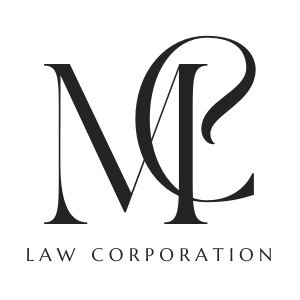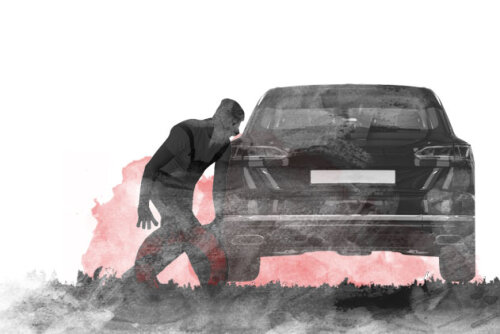Best Defamation Lawyers in Singapore
Share your needs with us, get contacted by law firms.
Free. Takes 2 min.
Or refine your search by selecting a city:
List of the best lawyers in Singapore
About Defamation Law in Singapore
Defamation in Singapore refers to the act of publishing or conveying a false statement about someone that harms their reputation. Singaporean law treats defamation as both a civil wrong and a criminal offense. It aims to balance protecting individuals' reputations and upholding freedom of expression. Defamation can occur through written statements (libel) or spoken words (slander). The legal framework in Singapore is stringent, emphasizing the importance of a factual basis before making potentially damaging claims about others.
Why You May Need a Lawyer
There are several common situations where one may require legal assistance related to defamation in Singapore:
- False Accusations: If you've been falsely accused of an action or crime, especially publicly, this can harm your reputation.
- Social Media Posts: With the rise of social media, false or defamatory statements can spread quickly and widely, prompting legal action.
- Professional Reputation Damage: If your business or professional credibility is hurt by false statements made by competitors, clients, or others.
- Slander at the Workplace: Unfounded gossip or negative comments in the workplace affecting your career or future opportunities.
- Online Reviews: Content published online that harms your personal or business reputation.
Local Laws Overview
Singapore's legal framework regarding defamation is relatively strict and is governed by the Defamation Act and the Penal Code. Key aspects include:
- Burden of Proof: The claimant must prove that the statement was defamatory, referred to them specifically, and was published to a third party.
- Defenses Available: Common defenses include justification (truth), fair comment on a matter of public interest, and privilege (statements made in certain contexts that are protected).
- Criminal Defamation: Under Section 499 of the Penal Code, defamation can also be treated as a crime if the intention is to harm a person's reputation.
- Remedies: Civil remedies can include damages (compensation for harm done) and injunctions to prevent further publication.
Frequently Asked Questions
What is the difference between libel and slander?
Libel refers to defamation by written or published statements, while slander involves defamation through spoken words.
Can opinions be defamatory?
Opinions can potentially be defamatory if they are presented as facts or imply false statements of fact.
Is truth a defense to defamation?
Yes, truth is a complete defense. If a statement is true, it cannot be considered defamatory.
What should I do if someone makes a defamatory statement about me on social media?
Consider gathering evidence (screenshots, timestamps), and consult a lawyer to evaluate your legal options, which may include requesting a retraction or filing a lawsuit.
How long do I have to file a defamation lawsuit?
In Singapore, the statute of limitations for defamation claims is generally six years from the date of publication.
Can businesses sue for defamation?
Yes, businesses can sue for defamation if false statements harm their reputation or cause financial loss.
What is a “cease and desist” letter?
A cease and desist letter is a formal request sent to the defamer, asking them to stop their defamatory behavior and make amends.
How are damages calculated in defamation cases?
Damages are calculated based on the harm to reputation, financial losses, the seriousness of the defamatory act, and intent behind the statement.
Can an apology resolve a defamation case?
An apology can help mitigate damage and resolve disputes but may not eliminate all legal liability or damages.
What role does intent play in defamation cases?
While intent can influence the severity of the penalties in criminal defamation, the focus in civil cases is more on the impact of the statement rather than the intent.
Additional Resources
For individuals seeking more information or assistance on defamation matters, the following resources can be helpful:
- The Law Society of Singapore: Offers resources and can help connect individuals with qualified lawyers.
- Singapore Mediation Centre: Provides services that can be a less adversarial alternative to court proceedings.
- Articles from notable law firms covering updates and insights on defamation law.
Next Steps
If you believe you need legal assistance regarding defamation in Singapore, consider the following steps:
- Document everything related to the incident, including all statements, communications, and the impact on your reputation.
- Consult a qualified defamation lawyer in Singapore who can provide personalized advice based on your situation.
- Discuss potential legal actions, including settlement negotiations, court proceedings, or alternative dispute resolutions.
Taking proactive legal action can help protect your reputation and seek appropriate redress for any defamation suffered.
Lawzana helps you find the best lawyers and law firms in Singapore through a curated and pre-screened list of qualified legal professionals. Our platform offers rankings and detailed profiles of attorneys and law firms, allowing you to compare based on practice areas, including Defamation, experience, and client feedback.
Each profile includes a description of the firm's areas of practice, client reviews, team members and partners, year of establishment, spoken languages, office locations, contact information, social media presence, and any published articles or resources. Most firms on our platform speak English and are experienced in both local and international legal matters.
Get a quote from top-rated law firms in Singapore — quickly, securely, and without unnecessary hassle.
Disclaimer:
The information provided on this page is for general informational purposes only and does not constitute legal advice. While we strive to ensure the accuracy and relevance of the content, legal information may change over time, and interpretations of the law can vary. You should always consult with a qualified legal professional for advice specific to your situation.
We disclaim all liability for actions taken or not taken based on the content of this page. If you believe any information is incorrect or outdated, please contact us, and we will review and update it where appropriate.
Browse defamation law firms by city in Singapore
Refine your search by selecting a city.
















